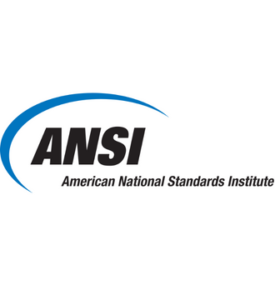What is ANSI standard?
ANSI, which stands for American National Standards Institute, is an organization that develops standards in the United States. Translation: ANSI works to establish standards used in the industrial, commercial, and government sectors, and to develop and define standards for the safety, compatibility, and quality of products, services, and processes.
Translation: ANSI collaborates with standard organizations such as ISO, IEC, and others to establish standards used in many industries. ANSI standards are used in various industries such as information technology, telecommunications, energy, construction, healthcare, safety, and environment. These standards provide assurance in areas such as safety, compatibility, and performance of products, and ensure compatibility among industries worldwide.
ANSI develops standards to ensure the safety and quality of products are maintained. Translation: ANSI standards contain guidelines for topics such as the design, production, testing, and certification of products. Additionally, ANSI standards also include standardization of terms and symbols used in various industries.
ANSI also provides education and certification programs for companies and professionals in various industries. These programs provide the necessary knowledge and skills to follow industry developments and implement standards. ANSI certification programs determine the level of expertise in product compliance and safety, and certify the knowledge and experience of professionals in the industry.
ANSI plays an important role in maintaining product quality, protecting consumers, and developing industries. The use of ANSI standards is critical for the health and safety of consumers. The use of ANSI standards ensures that a product tested and approved in one region is also accepted in another region.
ANSI plays a significant role in the development of many important standards. These standards include guidelines for many topics such as the design, production, testing, and certification of products. Additionally, ANSI standards also encompass standardization of terms and symbols used in various industries.
In addition to developing standards, ANSI also offers education and certification programs to contribute to the development of the industry. Translation: These programs help professionals in the industry to improve their knowledge and experience and keep up with industry developments. ANSI certifications are preferred by employers in many sectors and are required for many job positions.
The activities of ANSI have helped to improve the quality of products in many industries. Production, use, and sale of products in compliance with ANSI standards provide a higher level of assurance in terms of product safety, compatibility, and performance. These standards are also important for products and services to compete in domestic and international markets.
By ensuring compatibility among industries, ANSI also helps to promote trade and cooperation. ANSI helps in implementing standards by ensuring that industrial, commercial, and public sector companies design, produce, test, and certify products, services, and processes appropriately.
In conclusion, ANSI develops and publishes standards to contribute to the development of the industry. Additionally, by offering education and certification programs, ANSI helps professionals in the industrial, commercial, and public sectors to improve their knowledge and experience. ANSI standards ensure compatibility among industries worldwide on issues such as product safety, compatibility, and performance, and contribute to the development of trade and cooperation.
